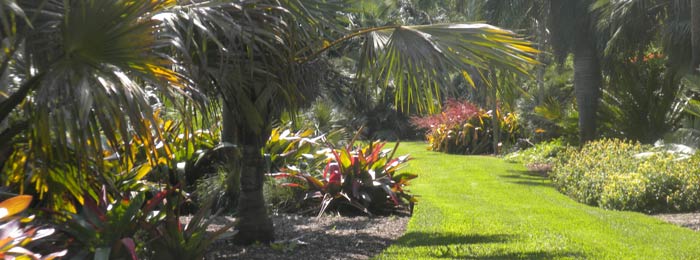Activity Level 2: Easy-Moderate
Experience Costa Rica’s biodiversity on this horticultural journey that also introduces the country’s renowned wildlife, culture, and conservation ethos. It is moderately paced, visiting six different destinations in 13 days. Sites include national parks and private reserves and gardens in diverse ecosystems: tropical dry forest, tropical rainforest, Pacific beaches, volcanic slopes, and more. Daily activities last for two to three hours at a time. These include garden tours, nature walks, and hikes on mainly easy paths; some trails have inclines, suspension bridges, and uneven or slippery sections. Also included are birdwatching and wildlife viewing; a twilight rafting trip; and farm visits. Optional activities include whitewater rafting or boating, and (at your Pacific beach hotel) various water sports. Expect high humidity with temperatures between 60˚ and 86˚F. The warmest months are March, April, and May; the wettest are September and October. The highest altitude is 2,160 meters. Overland travel is by private, air-conditioned motorcoach. The longest drive is four hours.
Entry & Exit Requirements
U.S. citizens must have a valid passport to enter Costa Rica. Passports must be valid for at least the duration of your stay. As this requirement is subject to change at any time without notice, we recommend at least 6 months' validity.
A visa is not required for visits up to 90 days.
If you are not traveling with a U.S. passport, please check with the Costa Rican Embassy for the requirements based on your nationality.
Health Information
IMMUNIZATIONS
The Centers for Disease Control recommends that all travelers be up to date on routine vaccinations such as measles-mumps-rubella (MMR) vaccine, diphtheria-pertussis-tetanus vaccine, varicella (chicken pox) vaccine, and your yearly flu shot before every trip.
There are no vaccinations required for entry into Costa Rica, unless you are traveling from a country where yellow fever transmission is a risk. Though not required for entry, the CDC recommends vaccination against hepatitis A, hepatitis B, and typhoid for most unvaccinated travelers to Costa Rica.
Please consult your physician for additional information and recommendations based on your individual circumstances.
MALARIA
The CDC advises that malaria transmission is present in certain regions of Costa Rica, primarily in the provinces of Alajuela and Limón. Malaria is caused by a parasite found in Anopheles mosquitos, which are active from dusk until dawn. If you are visiting areas where malaria is present and choose to use an anti-malarial drug, as recommended by the CDC, see your doctor for a prescription.
To protect against mosquitos, the CDC recommends that you cover exposed skin with lightweight, long-sleeved shirts and pants, consider treating clothes with permethrin, and use an insect repellent containing an EPA-registered active ingredient like DEET, picaridin, or oil of lemon eucalyptus (OLE). Apply sunscreen first, followed by the repellent, ideally 20 minutes later.
Be careful when applying products containing DEET, as it can damage or dissolve certain synthetic fabrics as well as plastic, rubber, vinyl, or elastic materials, such as those used in camera equipment, binoculars, phone cases, sunglasses, or watches. Additionally, some research suggests that when DEET and picaridin enter local waterways, they can be harmful to amphibians and other wildlife. When selecting a repellent, it is ultimately up to each traveler to weigh the risks and benefits of different options, keeping in mind both environmental factors and the importance of protecting against illness.
OTHER INSECT-BORNE ILLNESSES
Other insect-borne illnesses are known to occur in Costa Rica, including dengue fever, leishmaniasis, Zika virus, and others. Travelers to Costa Rica should protect themselves against insect bites using the measures described above.
After spending time outdoors in grassy or wooded areas, the CDC recommends showering and conducting a full-body check for ticks. If you find a tick attached to your skin, safely remove it as soon as possible.
As a precaution, the CDC advises women who are pregnant to consider postponing travel to any area where Zika virus transmission is ongoing.
OTHER NUISANCE PESTS
In places with rich vegetation and proximity to bodies of water, you may encounter chiggers. These are mites that can superficially attach to skin and leave behind itchy red bumps that appear 3-6 hours after initial contact. Their bites are sometimes mistaken for those of bed bugs or other insects; however, unlike bed bugs, which tend to target exposed skin, chiggers look for skin folds or areas where clothing fits tightly, like the ankles, waist, underarms, elbow creases, and the back of the knees to feed on broken down skin cells. They do not transmit any illnesses in Costa Rica.
We recommend that travelers to Costa Rica protect themselves against chigger bites using the measures noted above. Additionally, if potential exposure occurs, we recommend showering and scrubbing skin with soap and hot water as quickly as possible. If that is not immediately feasible, promptly rub skin with a dry towel or cloth and place any exposed clothing in a zip-top bag until it can be washed. To treat any itchiness, we suggest over-the-counter anti-itch lotion and/or oral antihistamines.
SUN EXPOSURE
The effects of the sun can be damaging to the eyes and skin. Spending time outdoors exposes you to the sun’s harmful ultraviolet (UV) rays, even on cloudy days. To protect yourself from the sun, use a broad spectrum sunscreen of at least SPF 15, protect skin with clothing, wear a wide-brimmed hat and sunglasses, and drink plenty of fluids.
ALTITUDE SICKNESS
If your itinerary includes locations at high elevation (above 5,000 feet), altitude sickness is a possibility. Stay hydrated and well-rested, and avoid heavy, fatty foods and alcohol in the days before arrival. Consult your physician prior to travel for advice specific to your situation.
Respiratory Illness Protocols
Please review our Respiratory Illness Protocols page, which explains our policy and procedures if you or another traveler should develop symptoms of a respiratory illness during your trip. Your participation in a Holbrook Travel program indicates that you are in agreement with these protocols.
















